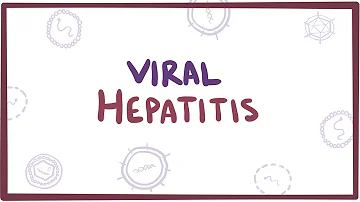What is a viral hepatitis?
Viral hepatitis is an infection that causes liver inflammation and damage. Inflammation is swelling that occurs when tissues of the body become injured or infected. Inflammation can damage organs. Researchers have discovered several different viruses link that cause hepatitis, including hepatitis A, B, C, D, and E.
What causes viral hepatitis?
Heavy alcohol use, toxins, some medications, and certain medical conditions can cause hepatitis. However, hepatitis is often caused by a virus. In the United States, the most common types of viral hepatitis are hepatitis A, hepatitis B, and hepatitis C.

Does viral hepatitis go away?
Acute viral hepatitis usually goes away on its own. Hepatitis A causes only acute infection, but hepatitis B and C often cause chronic or lifelong infection. If you have acute hepatitis A, B, or C, you may feel sick for a few months before you get better.
Which virus is most common cause of hepatitis?
Hepatitis E virus (HEV) is mostly transmitted through consumption of contaminated water or food. HEV is a common cause of hepatitis outbreaks in developing parts of the world and is increasingly recognized as an important cause of disease in developed countries.
Is viral hepatitis A or B?
Viral hepatitis is an infection that affects the liver. There are at least six different types of hepatitis (A-G), with the three most common types being hepatitis A, hepatitis B and hepatitis C. Hepatitis A is an acute infection and people usually improve without treatment.
How long does viral hepatitis last?
People with acute viral hepatitis usually recover in 4 to 8 weeks, even without treatment. However, some people infected with hepatitis B or C develop chronic infections.
Is viral hepatitis harmful?
Viral hepatitis can be fatal
Viral hepatitis types A, B, C, D, and E can cause infection and subsequent liver inflammation that can lead to serious diseases, including liver cancer, or even death. People who contract hepatitis A and E almost always recover and do not need treatment.
Is viral hepatitis serious?
Some types will pass without any serious problems, while others can be long-lasting (chronic) and cause scarring of the liver (cirrhosis), loss of liver function and, in some cases, liver cancer.
How is viral hepatitis treated?
Currently, the most effective therapy for hepatitis C is a drug combination consisting of pegylated interferon and ribavirin. Pegylated interferon is taken weekly as an injection and ribavirin is a twice daily tablet. The treatment is a form of chemotherapy and the ability to tolerate it varies widely for each person.
Which hepatitis is worse?
Hepatitis Delta is considered to be the most severe form of hepatitis because of its potential to quickly lead to more serious liver disease than hepatitis B alone. Of the 292 million people living with chronic hepatitis B, approximately 15-20 million are also living with hepatitis D.
What is the treatment for viral hepatitis?
About 25 percent of people with chronic hepatitis B can be cured with a drug called pegylated interferon-alpha, which is taken as a weekly injection for six months. The alternative is suppression of the virus with oral medications, such as lamivudine and adefovir.
How is viral hepatitis diagnosed?
Tests that can help diagnose hepatitis B or its complications are:
- Blood tests. Blood tests can detect signs of the hepatitis B virus in your body and tell your provider whether it's acute or chronic. …
- Liver ultrasound. A special ultrasound called transient elastography can show the amount of liver damage.
- Liver biopsy.
How long can you live with viral hepatitis?
People with hepatitis C can live many years after diagnosis, but the range varies. A 2014 study showed that patients infected with hepatitis C virus died on average 15 years sooner than people who did not have the illness. With hepatitis C, the liver becomes seriously damaged due to inflammation.
How long does viral hepatitis take to heal?
People with acute viral hepatitis usually recover in 4 to 8 weeks, even without treatment. However, some people infected with hepatitis B or C develop chronic infections.
What are the stages of viral hepatitis?
The entire illness of acute hepatitis B sequentially passes through three phases, namely prodromal phase, icteric phase and convalescence phase.
What is the best treatment for viral hepatitis?
Currently, the most effective therapy for hepatitis C is a drug combination consisting of pegylated interferon and ribavirin. Pegylated interferon is taken weekly as an injection and ribavirin is a twice daily tablet. The treatment is a form of chemotherapy and the ability to tolerate it varies widely for each person.

